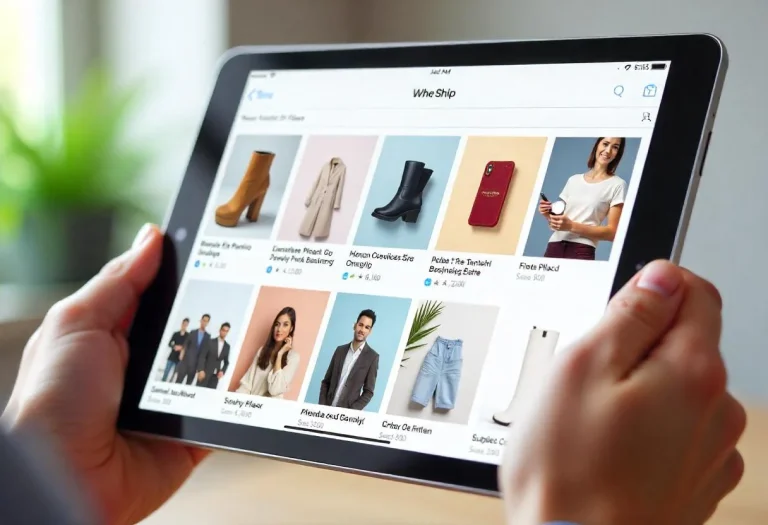
Artificial Intelligence (AI) has revolutionized various facets of technology, and Microsoft stands at the forefront of integrating this transformative power into computing. AI-powered computers by Microsoft represent the confluence of advanced hardware and intelligent software designed to enhance user experience, productivity, and innovation. These computers are not just tools but partners in creativity and efficiency.
Microsoft’s commitment to AI is evident in its suite of products that leverage machine learning, natural language processing, and predictive analytics. From the seamless integration of Cortana as a virtual assistant to sophisticated algorithms that optimize performance based on usage patterns, Microsoft’s AI-powered computers are engineered to adapt and evolve with their users’ needs.
The incorporation of AI extends beyond mere convenience; it fosters a more intuitive interaction between humans and machines. For example, Microsoft’s Surface devices utilize AI for tasks such as handwriting recognition and predictive text input, turning digital interfaces into extensions of human thought processes. Additionally, enterprise solutions like Azure AI provide businesses with powerful tools to harness data-driven insights.
In essence, Microsoft’s AI-powered computers signify a leap towards smarter computing environments where technology proactively supports creativity, decision-making, and everyday tasks. This convergence marks an exciting era where possibilities are redefined by intelligent systems tailored to human ingenuity.
Overview Of Microsoft’S Ai Technologies
Microsoft’s foray into AI technologies is robust and multifaceted, integrating advanced machine learning and cognitive services into its suite of products. Central to Microsoft’s AI strategy is Azure, the cloud computing platform that offers a comprehensive set of AI tools and services. Azure provides scalable solutions for data analysis, natural language processing, computer vision, and more. These capabilities enable developers to build intelligent applications tailored to various industries.
Another cornerstone is Cortana, Microsoft’s AI assistant designed to enhance productivity through voice recognition and contextual understanding. Cortana’s integration across Windows devices allows seamless interaction between users and their computers, automating tasks such as scheduling meetings or setting reminders.
Microsoft Office 365 also leverages AI with features like Editor in Word for grammar suggestions and Insights in Excel for data analysis. These enhancements aim to streamline workflows by providing users with intelligent assistance directly within their most-used applications.
Furthermore, the acquisition of companies like Nuance Communications underscores Microsoft’s commitment to advancing conversational AI technologies in healthcare and enterprise solutions. By embedding these sophisticated algorithms into its ecosystem, Microsoft not only augments user experiences but also spearheads innovations that redefine human-computer interactions across diverse sectors.
Key Features And Capabilities Of Microsoft Ai-Powered Computers
Microsoft AI-powered computers represent a significant leap forward in the integration of artificial intelligence with everyday computing. One of the key features of these systems is their ability to seamlessly enhance productivity through intelligent task management. By learning user behavior patterns, these computers can anticipate needs, automate routine tasks, and provide timely reminders, thereby streamlining workflows and improving efficiency.
Another standout capability is advanced natural language processing (NLP). This allows for more intuitive interactions with digital assistants like Cortana, enabling users to perform complex searches, manage schedules, and control smart home devices through simple voice commands. Additionally, Microsoft’s AI-driven security features offer robust protection against emerging cyber threats by continuously analyzing data to detect anomalies and potential vulnerabilities in real-time.
Moreover, these computers excel in data analysis and visualization. Leveraging machine learning algorithms, they can process vast amounts of information quickly, offering actionable insights that would be difficult for humans to derive manually. This makes them invaluable tools for business intelligence and research applications.
Overall, Microsoft AI-powered computers are designed to adapt to the evolving needs of users by providing intelligent solutions that enhance both personal productivity and enterprise-level operations.
Benefits Of Using Ai In Computing
The integration of AI into computing, particularly in Microsoft AI-powered computers, has revolutionized the way we interact with technology. One of the most profound benefits is enhanced productivity. AI algorithms can automate repetitive tasks, allowing users to focus on more complex and creative aspects of their work. For instance, intelligent software can manage emails, schedule meetings, and even draft documents based on user preferences and past behaviors.
Moreover, AI significantly bolsters data analysis capabilities. By leveraging machine learning models and natural language processing, these systems can sift through vast amounts of data at unprecedented speeds to uncover insights that would be nearly impossible for humans to detect manually. This not only accelerates decision-making processes but also enhances accuracy by reducing human error.
Additionally, personalized user experiences are now more achievable than ever before. Microsoft’s AI-driven interfaces learn from individual user interactions to provide customized recommendations and adaptive functionalities that cater specifically to personal habits and needs. This level of personalization extends beyond mere convenience; it fosters a more intuitive and efficient interaction between the user and their device.
Furthermore, security is greatly enhanced through AI’s ability to detect anomalies in real-time. Advanced threat detection mechanisms powered by machine learning continuously monitor for suspicious activities, offering robust protection against cyber threats.
In essence, the infusion of AI into Microsoft computers signifies a leap towards smarter computing environments that not only streamline operations but also create safer and more engaging user experiences.
Applications And Use Cases For Microsoft Ai-Powered Computers
Microsoft AI-powered computers have revolutionized various sectors by integrating advanced artificial intelligence technologies into their core functionalities. One prominent application is in the realm of personalized user experiences. These systems leverage machine learning algorithms to tailor software interfaces and functionalities according to individual user habits and preferences, thereby enhancing productivity and user satisfaction.
In the business sector, Microsoft AI-powered computers are indispensable for data analysis and predictive analytics. Companies utilize these machines to sift through vast quantities of data, extracting actionable insights that inform strategic decisions. The integration of AI has also streamlined processes such as customer relationship management, supply chain logistics, and financial forecasting.
Education is another field benefiting immensely from these advancements. Intelligent tutoring systems provide personalized learning experiences, adapting in real-time to a student’s progress and areas that need improvement. This not only accelerates learning but also ensures a more engaging educational journey.
Healthcare also reaps substantial benefits; AI capabilities enable rapid analysis of medical records for more accurate diagnoses and personalized treatment plans. Furthermore, these systems support telemedicine initiatives by providing real-time data analytics that aid physicians during virtual consultations.
In essence, Microsoft AI-powered computers are transforming industries by making processes smarter, more efficient, and highly personalized.
Comparison With Other Ai-Enabled Systems
In comparing Microsoft AI-powered computers with other AI-enabled systems, several distinct characteristics emerge. Microsoft’s integration of AI across its ecosystem, including Windows, Azure, and Office 365, creates a seamlessly interconnected experience. This holistic approach contrasts with competitors who may offer isolated AI applications or services without the same level of integration.
For instance, Apple’s AI capabilities are often tightly coupled with its hardware but may lack the extensive cloud-based functionalities seen in Microsoft’s offerings. Google’s AI systems excel in data processing and machine learning capabilities but often focus on cloud services like Google Cloud rather than a unified hardware-software synergy.
Additionally, Microsoft’s enterprise solutions benefit from its robust security frameworks and compliance certifications. This makes it particularly attractive to businesses concerned about data privacy and regulatory adherence compared to other platforms that might not prioritize these aspects as strongly.
Overall, while each major player brings unique strengths to the table, Microsoft’s comprehensive approach offers a distinctive blend of integrated functionality, ethical standards, and security features that set it apart in the landscape of AI-enabled systems.
Future Prospects And Innovations In Microsoft Ai Computing
As we look ahead, the future of Microsoft AI-powered computers is brimming with transformative potential and groundbreaking innovations. One of the most promising prospects lies in the realm of personalized computing experiences. By leveraging advanced machine learning algorithms, these devices will be able to anticipate user needs with unprecedented accuracy, offering tailored solutions that enhance productivity and user satisfaction.
Additionally, Microsoft’s commitment to ethical AI development ensures that future advancements will prioritize transparency and fairness. This focus on responsible AI will foster greater trust among users and pave the way for more widespread adoption of AI technologies in everyday computing.
The integration of quantum computing into Microsoft’s AI ecosystem also holds immense promise. Quantum computing’s unparalleled processing power could revolutionize complex problem-solving capabilities, allowing for breakthroughs in fields ranging from climate modeling to drug discovery. As Microsoft continues to push the boundaries of what’s possible with quantum technology, we can expect its AI-powered computers to deliver performance leaps that were previously unimaginable.
Furthermore, Microsoft’s ongoing investment in natural language processing (NLP) will enable more intuitive human-computer interactions. Enhanced NLP capabilities will facilitate smoother communication between users and their devices, making technology more accessible and efficient for everyone.
In summary, the future of Microsoft AI-powered computers promises a harmonious blend of personalization, ethical integrity, quantum advancements, and improved human-computer interaction—ushering in a new era of intelligent computing.



